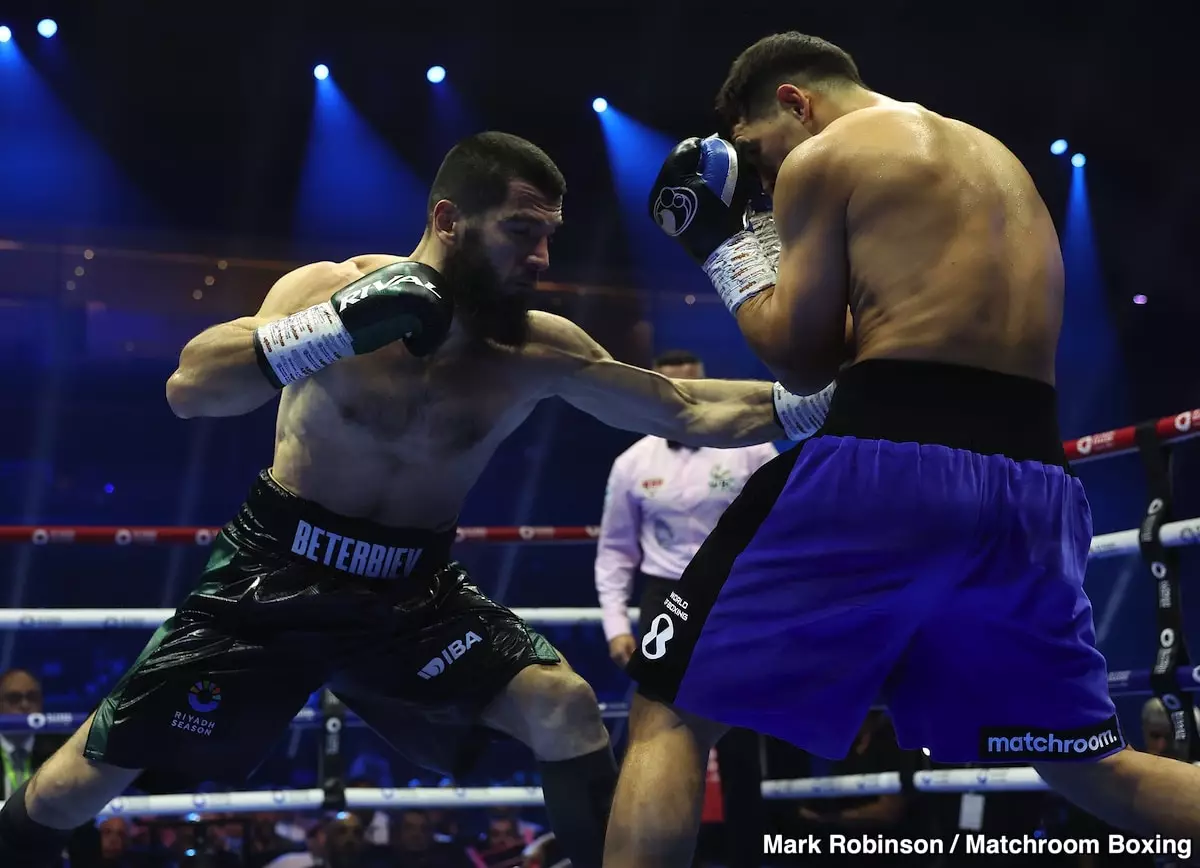Dmitry Bivol’s loss to Artur Beterbiev in October left him with a bitter taste that undoubtedly fuels his desire for revenge. The match, which culminated in a majority decision that favored Beterbiev, showcased a fierce battle where Bivol’s techniques and strategies came into question. Despite his reputation as a skilled boxer with a solid track record (23-1, 12 KOs), Bivol’s performance appeared somewhat lethargic in the latter half of the fight. Adopting a defensive style, he seemed more focused on evasion rather than engaging with Beterbiev’s relentless offense. This tactical error led to the impression that Bivol was merely attempting to survive the bout, allowing Beterbiev’s imposing presence to dominate the ring.
His Path to Improvement
With a rematch scheduled for February 22nd in Riyadh, Saudi Arabia, Bivol recognizes the pressing need to revamp his approach. Resolute in his commitment to improvement, he has articulated a plan that emphasizes aggression and engagement. “I just need to be better in all points,” he stated, acknowledging the necessity of throwing more punches and delivering harder impacts. This newfound mentality marks a significant shift from his previous tactics, where he often prioritized defense, inadvertently providing Beterbiev the opportunity to showcase his power.
While Bivol’s inclination to absorb lessons from the past is commendable, the challenge lies in converting those lessons into an actionable strategy without risking premature defeat. The power and pressure that Beterbiev brings into the ring are serious considerations for any fighter. Bivol’s acknowledgement that “it’s not too difficult” speaks volumes about his psychological readiness for the rematch. However, it underlines the complexity of the task ahead: can he adjust his style effectively without losing the essence of what has made him successful thus far?
The Fine Line of Aggression
The prospect of Bivol adopting a more aggressive stance is tantalizing yet fraught with risk. At 34, age can serve as both a motivator and a limiting factor. Shifting from a defensive playstyle to one characterized by flat-out aggression is not merely a case of willpower—it requires a fundamental transformation, one that may be debilitating or lead to mistakes under pressure.
Furthermore, Bivol’s martial philosophy must accommodate the fear of being knocked out by Beterbiev, whose formidable knockout record (20 KOs out of 21 wins) demands respect. The balance between adopting a more combative approach and maintaining defensive integrity will lie at the heart of Bivol’s strategies come fight night.
Dmitry Bivol stands at a crossroads, armed with the lessons of his history but vulnerable to the escalated dangers of his future fight with Artur Beterbiev. This rematch presents an opportunity for redemption, but it also highlights the complexity involved in evolving one’s fighting style. The quest for victory is not merely a physical challenge but a psychological journey that examines the essence of a fighter’s identity. By crafting a plan that embraces both strategy and adaptability, Bivol may yet find satisfaction in overcoming his past and emerging victorious. The stakes are high, but so are the rewards for a fighter determined to redefine his legacy in the boxing world.

